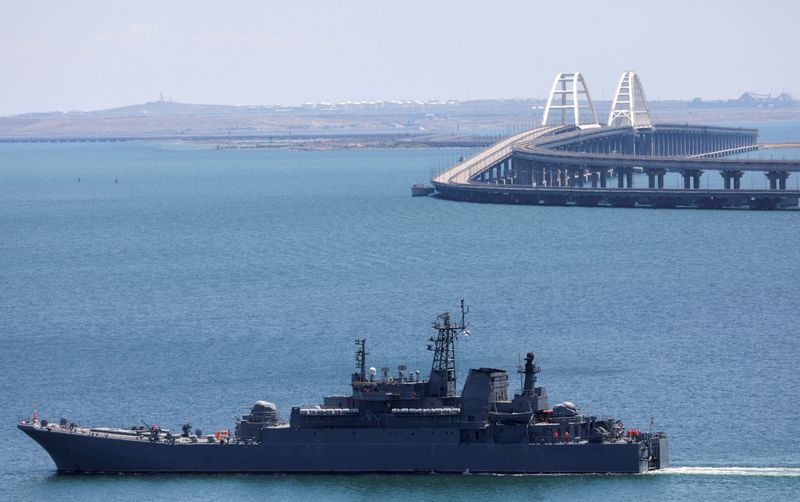(Reuters) -A drone attack on an ammunition depot in Crimea prompted authorities to evacuate a 5-km (3-mile) radius and briefly suspend road traffic on the bridge linking the peninsula to Russia, the region's Moscow-installed governor said on Saturday.
Ukraine said its army had destroyed an oil depot and Russian army warehouses in what it called the "temporarily occupied" district of Oktiabrske in central Crimea.
The attack caused an ammunition depot to explode, said Russian-installed governor Sergei Aksyonov, adding there was no reported damage or casualties. Footage shared by state media showed a thick cloud of grey smoke at the site.
Aksyonov later said that all rail traffic in the affected area, temporarily disrupted, was back to normal operation.
Russian news agencies quoted the Health Ministry as saying 12 people required medical assistance and four were taken to hospital.
Russia seized and annexed Crimea from Ukraine in 2014, eight years before launching its full-scale invasion of the country.
The brief halting of traffic on the Crimean Bridge, about 180 km (110 miles) to the east of the drone incident, came five days after explosions there killed two people and damaged a section of roadway - the second major attack on the bridge since the start of the war.
The 19 km (12 mile) road and rail bridge is a vital logistics link for Russian forces, and is also heavily used by Russian tourists who flock to Crimea in summer.
Ukrainian President Volodymyr Zelenskiy said on Friday that the bridge was a legitimate target because it was a military supply route for Russia.
"This is the route used to feed the war with ammunition and this is being done on a daily basis," he said.
Russia is on high alert for incidents at the bridge, and an official Telegram channel tells people not to panic in the event of an alarm.
In a further sign of security concerns in Crimea, Oleg Kryuchkov, an adviser to Aksyonov, warned people not to post images of critical infrastructure on the internet.

He urged people who knew the authors of such posts to report them to the interior ministry or the FSB security service.
"Remember that a video posted on the web of military or other critical facilities is work for the enemy," he said.